21 min to read

There are millions of businesses worldwide. Each business is always looking for unique ways to increase its brand awareness and grow its vision. While there are many ways to help businesses grow, there is one way of optimizing your business that you may be looking over.
Unfortunately, many businesses overlook optimizing their business for local search. Local SEO is important since most consumers look for a product or service online. If your business is not visible in the searches, it may never be discovered.
When implemented correctly, local SEO can use local intent to increase the visibility of your business. When a user searches for your product or service, the organic results are relevant to the local intent of that search. Hence, it is important to make it up there to stand out.
Let's dive right into the magical world of Local SEO! This term is your new best friend if you own a business, especially one with physical locations. Picture this: a potential customer in your area fires up their laptop and types into Google, "best coffee shop near me." If your business is a cozy little coffee house, you want your name to pop up at the top of those search results, right? That's what Local SEO can do for you. Now, Local SEO isn't just a fancy term. It's about optimizing your online presence to attract more business from relevant local searches. These searches happen on Google and other search engines. Can you imagine the disappointment of a die-hard coffee lover not finding your exquisite blends when they desperately need it? It makes you shiver.
This is why understanding and implementing SEO is essential. The internet is busy, and standing out, especially locally, can mean the difference between customers walking through your door or your competitors'. Besides, the stats don't lie. Nearly 46% of all Google searches are looking for local information. Do the math. There's a ton of opportunity out there for businesses just like yours.
To compete, you need to know how local search algorithms work. When deciding which businesses to show, these algorithms consider proximity, relevance, and prominence. Confused about what these mean? Don't worry. We'll delve into the nitty-gritty in the next section.
But let's first remember one key thing. Local SEO is not just about search engines. It’s also about people and how they relate to your business. The ultimate goal is to connect with the people near you looking for your services. Ready to make that happen? Let’s roll!
Understanding Local Search Algorithms
Let’s say you're planning a trip and want to try out the local cuisine. What do you do? Google it, right? But have you ever wondered how Google decides which businesses to show you first? That's where local search algorithms come into play. Google's local search algorithm considers three main factors: proximity, relevance, and prominence. Proximity is straightforward: how close is the business to the searcher's location? The closer you are, the more likely you appear in search results.
Relevance, on the other hand, is how well a local listing matches what someone is searching for. Does your business do what the customer wants? Do your business categories align with the searcher’s query? Then, there's Prominence. This refers to how well-known a business is. Google considers information about a business from across the web (like links, articles, and directories).
Don't forget, it’s not just Google in this game. Bing's local search uses a similar algorithm, and if you think Apple Maps isn’t essential, think again. With the increase in iPhone users, appearing in Apple Maps searches is more important than ever. Understanding these algorithms can seem like cracking a tough code. But once you grasp it, you're one step closer to ranking your local business. So, ready to optimize your local business for these algorithms? Let’s get to it!
Here are a few local SEO ranking factors every business must consider.
1. Google Business Profile
As a business striving for success, looking for ways to ensure maximum results is natural. In such circumstances, it is best to rely on trustworthy support from LocalRanking and establish your presence on Google My Business to leverage local SEO. This profile shows your business's presence outside of your reviews.
Start with creating a business title for your Google business account. Make sure to use your business's official name and the exact keyword in the title you are trying to rank for. This practice can increase your business's visibility in the local search.
Google my business also has more than 4,000 categories to choose from. You can choose up to 10 categories and subcategories to make your business more discoverable by locals. Try to narrow the niche down to appear in search results as much as possible.
The Google Business Profile also enables businesses to include photos, posts, Q&As, posts, and many more features that can help them stand out. These features can allow you to stand out in your local community.
2. Google Reviews
Consumers are skeptical about every business and their service in a world filled with fraud and scams. Fortunately for them, they have the luxury of accessing the reviews of a business and assessing whether they are a viable option.
Many consumers agree they prefer customer reviews rather than believing what any business has to say for themselves. Of course, more reviews also lead to increased visibility and website traffic since the keywords in the reviews are also used as a ranking factor by Google.
Naturally, you cannot expect your customers to know how keywords work or what words can help you in ranking. Therefore, it is best to ask satisfied customers to go into the details of their experience with you.
This way, your business can have improved ranking and enhanced customer service. The best part is that your customers can feel valued. They are made aware that your business takes customer satisfaction and happiness seriously.
3. Facebook Business Page
Every business worldwide looks forward to making more connections and increasing its brand awareness. Of course, it is challenging to make your business stand out and create new connections in a saturated market.
In such circumstances, businesses using social media platforms such as Facebook can increase their businesses' local visibility. Like a normal Facebook account, a Facebook business account also allows you to make connections to promote your products and services.
Millions of people worldwide use Facebook regularly, and it may act as a search engine for many. Therefore, it is best to establish your presence on a Facebook business platform as soon as possible and link your website, business hours, and a summary.
Even if you feel that the impact is limited, a social media presence on platforms like Facebook and Instagram can have an impact on your local SEO. Hence, many can agree that it is an endeavor worth undertaking.
4. Social Listings
Social listings are one of the most acclaimed ranking factors for local SEO. They can provide the potential customer all the necessary information about your business. These platforms can increase your business's reachability and discoverability in the longer run.
Social listings are important to local SEO as they provide valuable information about your business. It also enhances your local visibility. Hence, their chances of your business standing out to the competitors also increase significantly.
Although it's important to be active in all your listings, remember that it is not the end of the world for you to take a break. You can share your website links or social media handles where you are always active. This way, you can reduce the frustration of users waiting for a response.
5. Maintain Consistency
Millions of businesses are looking for the right opportunity to create brand awareness. However, this goal can become hard to achieve when businesses do not stay consistent with important information such as their name, address, and phone number.
Frequent changes in details can lead to confusion among the customers and potential leads. Therefore, ensuring that your contact details and information remain the same for years to come is important. This practice can establish your name in the business niche and establish you among your community.
The best part is that consistent details can be a surety for your customer. On the contrary, if you change your business name and details frequently, customers may have difficulty trusting your business's authenticity and reliability.
Key Local SEO Ranking Factors
So, you know what local SEO is and have a handle on local search algorithms. But how do you make it work for your business? Here's where the rubber meets the road. We will discuss the significant local SEO ranking factors, starting with your Google My Business Profile. Think of Google My Business (GMB) as your digital storefront. This is where you manage how your business appears on Google Search and Maps. Key elements include your business's name, address, and phone number (NAP). Consistency is crucial - the NAP on your GMB should match exactly the one on your website. Another vital aspect is customer reviews. Responding to positive and negative reviews shows your customers that you value their opinions.
Then we've got business categories. Imagine you're a local bakery that specializes in wedding cakes. Ensure you're listed as a "bakery" and a "wedding service". The more accurate and specific your categories, the more likely you are to rank for related searches. Don't forget to use GMB features like Posts or Q&A to give more details about what you offer.
Next up is On-Page SEO Factors. Your website is your home turf, and optimizing it for local search is essential. Focus on creating content that resonates with local customers. Are you a fitness center in Chicago? Try a blog post on "Best Exercises for Winter in Chicago". Ensure your title tags, meta descriptions, and headers include local keywords.
Off-Page SEO Factors, like local link building, citations, and social media signals, also play a huge role. Build relationships with other local businesses and bloggers for backlinks, list your business in online directories, and stay active on social media. These actions improve your online prominence, and yes, Google notices that!
Lastly, we have reviews and ratings. They're like digital word-of-mouth. Studies show that 88% of consumers trust online reviews as much as personal recommendations. Start by asking your loyal customers for reviews. Responding to them, even the negative ones, shows potential customers that you take their experiences seriously.
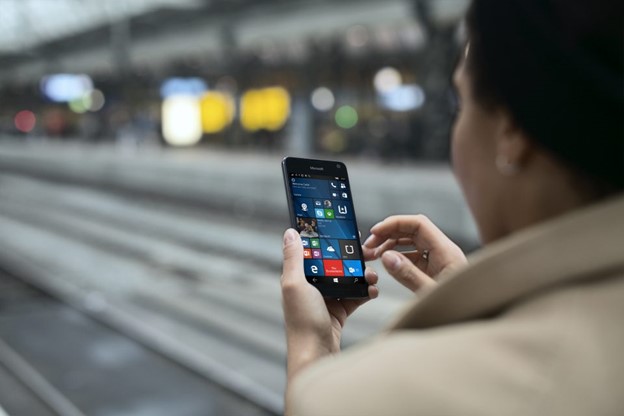
Role of Mobile in Local SEO
Now, let's talk about your customers on the go. With smartphones practically glued to our hands, more and more searches are happening on mobile. This is even more true for local searches. Ever been out and about and googled "food near me"? That's a local mobile search. This is why having a mobile-friendly website is a must. Google has moved to mobile-first indexing, which means it's looking at your mobile site before your desktop site to determine rankings. If your site doesn’t play well with mobile, it's not just your users that will notice – Google will too.
Voice search is another rising trend with local SEO. With the rise of smart speakers and AI assistants like Alexa and Siri, voice search is changing the game. People use more conversational language in voice search, so consider that in your keyword strategy.
Case Studies of Successful Local SEO Strategies
Here's the fun part - real-life examples! Let's look at a hypothetical local business, "Jim's Gourmet Burgers," in San Francisco. Despite having the juiciest burgers in town, Jim struggled with online visibility. After a focused local SEO strategy, which included claiming his GMB listing, optimizing his website with local keywords, and running a review campaign, Jim saw a dramatic increase in online visibility. His business started to appear in the local 3-pack for searches like "best burgers in San Francisco" and "burger joint near me". The result? More customers, more sales, and more mouthwatering burgers the locals enjoy!
Another example comes from a local dental practice in Dallas. Their problem? Being invisible online. The solution involved a complete website overhaul, a targeted content strategy involving local SEO keywords, earning local links from authoritative sites, and harnessing the power of patient reviews. Fast forward six months, and their site traffic increased dramatically, as did new patient bookings.
The key takeaway from these examples is clear - a strategic, focused approach to local SEO can yield significant results. And remember, it’s not just about implementing these practices once, but continually optimizing and adapting your strategy.

Developing a Local SEO Strategy
Ready to start harnessing the power of local SEO for your business? The first step is to conduct a local SEO audit. Look at your current online presence, including your website, GMB profile, and social media platforms. Identify areas that could use improvement, like inconsistent NAP information, unoptimized content, or lack of online reviews. Next, set clear, achievable goals. Maybe you want to rank in the local 3-pack for a specific keyword or increase traffic to your website from local searches. Either way, having clear goals will guide your strategy.
Once you've set your goals, it's time to implement them. Optimize your GMB profile, ensure your website is mobile-friendly, and create locally-focused content - the list goes on! But remember, SEO is not a one-and-done deal. It requires constant monitoring and tweaking. You’ll want to track your progress over time, too. Some key KPIs to track might include organic website traffic, GMB listing views, clicks for driving directions, phone call clicks, rankings for local keywords, and the number and quality of online reviews.

The Future of Local SEO
While we can't predict the future with absolute certainty, we can make some educated guesses about where local SEO is heading. One thing is for sure: local SEO isn't going anywhere. In fact, with the continued rise of mobile and voice searches, it's becoming more important than ever. We might also see a rise in hyperlocal SEO - targeting customers in extremely specific locations. We're talking more specific than just a city or neighborhood. Think a particular street or block.
To prepare for these changes, stay flexible and open to new strategies. Keep learning, testing, and iterating on your local SEO strategy. And most importantly, keep the focus on your customers. After all, SEO isn't just about impressing search engines - it's about connecting with and serving your customers.
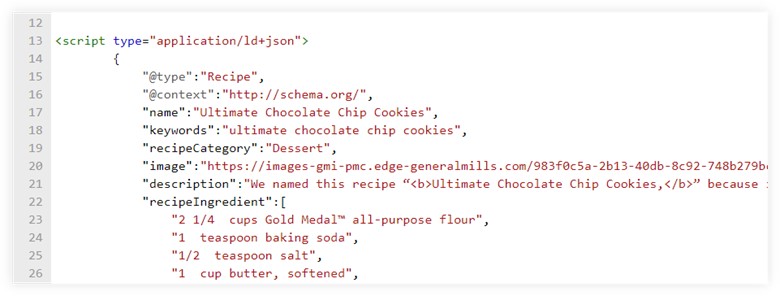
Structured Data Markup
Getting to the top of local search results isn't just about great content and backlinks. It's also about communicating effectively with search engines. That's where structured data markup, or schema, comes in.
Schema is a semantic vocabulary added to your website that helps search engines understand your content. It's like a secret language between your website and Google. This can include information like your business's name, address, phone number, opening hours, and more. Using schema can significantly impact your local SEO. For instance, when used correctly, it can result in rich results or knowledge graph entries, making your business stand out in search results. It’s an advanced SEO technique, but the payoff can be huge.
Several technical aspects can significantly boost your local search ranking. This step delves into the technical side of Local SEO and provides code examples for a better understanding.
Structured data markup, often called 'schema markup,' is a powerful SEO tool. It's a form of microdata that makes it easier for search engines to parse and interpret the information on your webpages. For local businesses, implementing the LocalBusiness schema can provide a serious boost. Here's a simple example of how to implement it:
This script tells search engines specific information about our business - name, URL, address, opening hours, and even social media profiles.
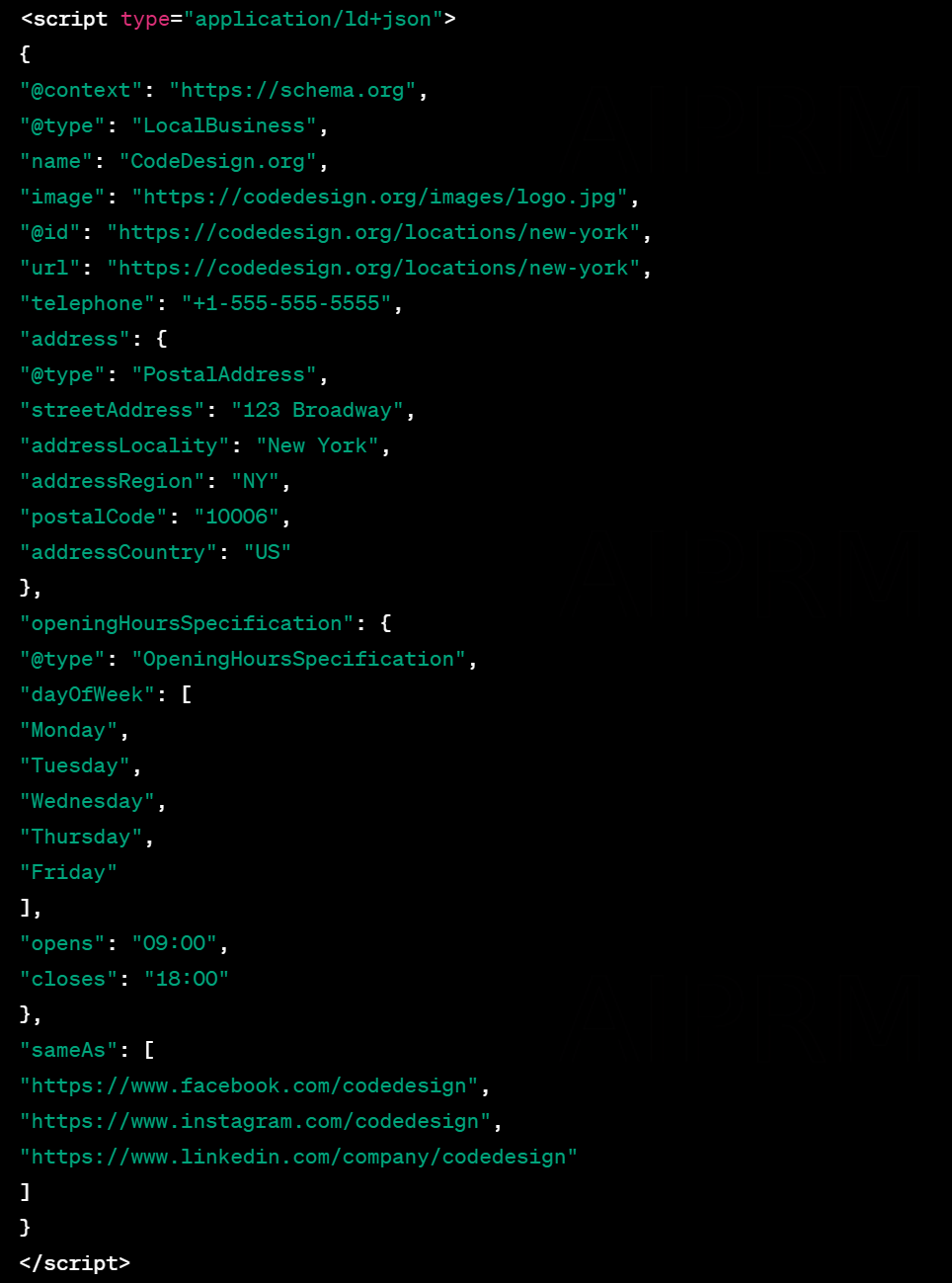
This markup should be repeated for each location page, with the appropriate details updated for each location.
Localized URL Structure
URL structure is another important factor in local SEO. Search engines prefer clean, simple, and descriptive URLs. A clear structure helps search engines understand your site hierarchy and can boost your SEO. For businesses with multiple locations, it’s recommended to have a separate page (and therefore URL) for each location. Here's an example:
- https://codedesign.org/locations/lisbon/
- https://codedesign.org/locations/boston/
Local SEO Meta Tags
Incorporating location-specific keywords in your title tags and meta descriptions can enhance your local SEO. Here's an example for the New York location of CodeDesign.org:

XML Sitemaps and Robots.txt
XML sitemaps and Robots.txt files are essential for search engines to understand and crawl your website effectively. The XML sitemap lists all the important pages of your website. Here's an example of how CodeDesign.org can include their location pages:
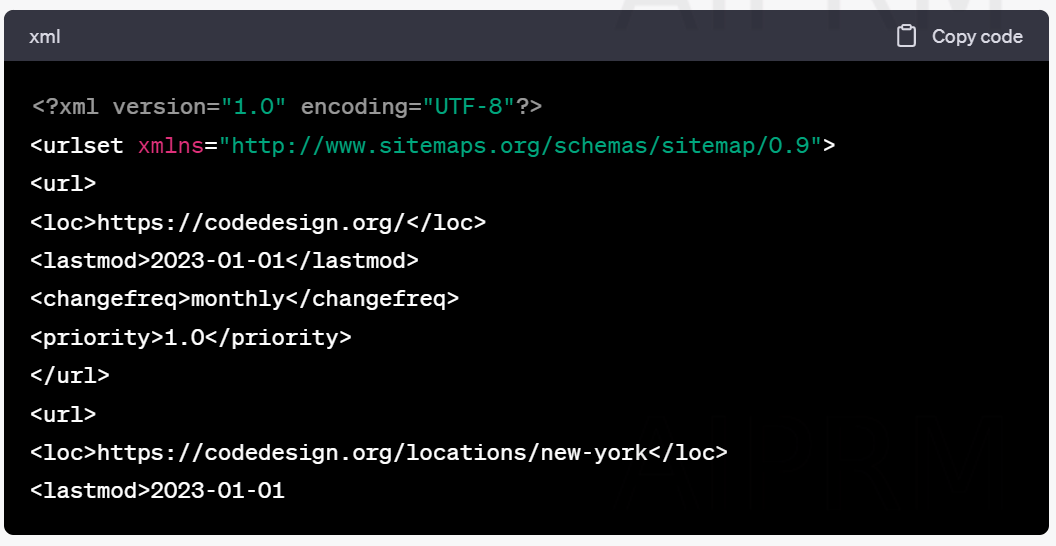
The Robots.txt file gives instructions to search engine crawlers about which pages to crawl and which to avoid. A simple robots.txt file for CodeDesign.org could look like this:

This instructs all bots (User-agent: *) to avoid crawling the WordPress admin section (Disallow: /wp-admin/) but allows for the admin-ajax.php file to be crawled. It also points bots to the sitemap.
As a digital marketing agency, CodeDesign.org's site content might change frequently. Hence, it's important to have dynamically generated XML sitemaps and Robots.txt files. This can be achieved through back-end languages like Python, PHP, or Node.js, or through certain October CMS plugins.
Page Speed Optimization
Page speed is a critical factor for SEO, and it's even more important for local searches, as users are often on the move and need quick results. One key area to focus on is image optimization. CodeDesign.org, as a digital marketing agency, likely uses numerous high-quality images on their website. They need to ensure these images are properly optimized for web use.
Here is a code example using HTML to display an optimized image:

In this example, the src attribute points to an optimized image file. The alt attribute provides descriptive text for screen readers and search engines. The width and height attributes tell the browser how to size the image, preventing layout shift when the image loads.
JSON-LD for Rich Snippets
JSON-LD (JavaScript Object Notation for Linked Data) is a method of encoding Linked Data using JSON, and is recommended by Google for structured data. Rich snippets like star reviews are often derived from this structured data and can drastically increase click-through rates. For instance, CodeDesign.org might want to showcase client reviews on search engine results pages (SERPs). This can be achieved by adding the following code to their HTML:
Implementing Hreflang Tags
For businesses that operate in different countries and languages, like CodeDesign.org, implementing hreflang tags is crucial. These tags tell search engines which language you are using on a specific page, so the search engine can serve that result to users searching in that language.
Here's an example of how CodeDesign.org uses hreflang tags for English and Spanish versions of its homepage:
Canonical Tags and Duplicate Content
Duplicate content can hurt your SEO efforts. Canonical tags allow you to tell search engines that certain similar URLs are equivalent, with one URL being the "preferred" version.
Imagine that CodeDesign.org has a printable version of its homepage that's accessible via a different URL. They would want to implement a canonical tag like so:
Optimizing Page Speed with Lazy Loading
Page speed is a crucial SEO factor. One way to improve page speed is by implementing lazy loading. This technique delays loading of images or other resources until they’re needed, thereby improving initial page load time.
Here's an example of a lazy loading implementation for an image:

Note the use of the data-src attribute in place of the usual src. This is where the image's URL is placed. JavaScript then targets the lazyload class to replace the data-src attribute with src when the image enters the viewport.
Progressive Web App (PWA) for SEO
Progressive Web Apps (PWAs) combine the best of both web and mobile applications, and they can also provide SEO benefits. PWAs are reliable, fast, and engaging. Google's Lighthouse tool can be used to audit your PWA and ensure it's set up correctly.
CodeDesign.org might consider turning their website into a PWA. Here's an example of the necessary manifest.json file they'd need:
{
"short_name": "CodeDesign",
"name": "CodeDesign.org - Digital Marketing Agency",
"icons": [
{
"src": "/favicon-32x32.png",
"sizes": "32x32",
"type": "image/png"
},
{
"src": "/favicon-16x16.png",
"sizes": "16x16",
"type": "image/png"
}
],
"start_url": "/",
"background_color": "#ffffff",
"display": "standalone",
"scope": "/",
"theme_color": "#000000"
}
They would also need a service worker, which is a crucial part of a PWA.
Utilizing Server Log Files for SEO Analysis
Server log files contain valuable information about how search engines are interacting with your website. By analyzing these logs, you can uncover various SEO opportunities and issues.
While the specifics of accessing and reading log files depend on your server configuration, you'll typically find entries like this:

66.249.66.1 - - [24/Apr/2023:23:59:59 +0000] "GET /some-page/ HTTP/1.1" 200 1234 "-" "Mozilla/5.0 (compatible; Googlebot/2.1; +http://www.google.com/bot.html)"
This log entry indicates that Googlebot accessed /some-page/ on CodeDesign.org's site and received a successful HTTP status code 200.
Advanced Link Attributes: UGC and Sponsored
Google introduced rel="ugc" and rel="sponsored" link attributes to provide more information about the nature of links. UGC stands for User Generated Content, and as such, rel="ugc" should be used in links within user-generated content. rel="sponsored" should be used for any links in advertisements, sponsorships, or other compensation agreements.
For example, CodeDesign.org might have a blog with comments. Any links in those comments should use the UGC attribute:

Implementing AMP (Accelerated Mobile Pages)
AMP is a Google-backed project designed to load web pages on mobile devices faster. In an AMP version of a webpage, JavaScript is limited, and the use of an off-the-shelf JavaScript library (AMP JS) is imposed. For instance, CodeDesign.org might want to implement AMP on their blog posts. The HTML might look like this:
CodeDesign.org Blog

SEO via API
An API, or Application Programming Interface, allows different software applications to communicate with each other. APIs can share content across different platforms, enhancing your SEO reach.
For instance, CodeDesign.org might have an API endpoint like https://codedesign.org/api/posts to share blog posts with partner sites. This increases the reach of their content, driving traffic back to their site and boosting their SEO.
SEO with JavaScript Frameworks
JavaScript frameworks like Angular, React, or Vue.js are commonly used for building websites. However, because they render content client-side, search engines may have difficulty crawling and indexing it. To counteract this, we use server-side rendering (SSR) or pre-rendering. For instance, a React-based site like CodeDesign.org could use Next.js (a framework for server-side rendered React applications) to improve SEO.
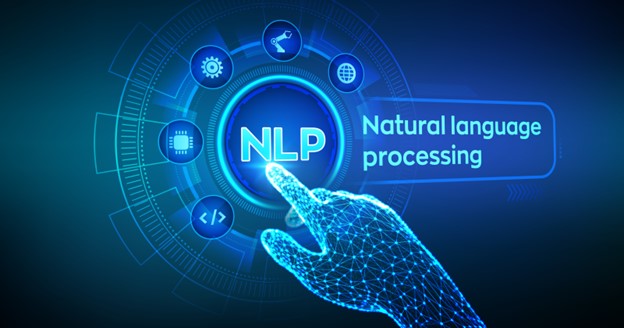
Content Optimization with NLP (Natural Language Processing)
NLP is a subfield of AI that focuses on the interaction between computers and humans. SEO professionals use NLP to understand how Google's BERT algorithm (used in their search engine) interprets search queries. CodeDesign.org might use NLP tools to analyze their website content, ensuring that it aligns with the types of natural language queries that its target audience might use.
AI and Machine Learning in SEO
Artificial Intelligence and Machine Learning technologies can help businesses understand their target audience better, automate tedious tasks, and predict future trends. CodeDesign.org, for instance, might use machine learning algorithms to analyze search patterns and predict future trends in the digital marketing industry. They could produce content that anticipates these future searches, gaining a significant advantage in SERPs.
In an ever-evolving digital landscape, advanced SEO practices require combining technical coding skills, an understanding of modern web frameworks, and a forward-thinking approach that embraces AI and machine learning. By employing these advanced coding techniques, businesses like CodeDesign.org can significantly boost their visibility on search engine results pages and stay one step ahead in the competitive digital marketing space.

The AI and NLP Revolution: How They Will Reshape SEO and SERPs
Artificial Intelligence (AI) and Natural Language Processing (NLP) are two technological innovations that have made a significant impact on SEO and how search engine results pages (SERPs) are presented. As these technologies continue to evolve, their influence will only grow. This article will explore the future trends in advanced SEO coding, particularly focusing on AI and NLP.
AI’s Growing Role in Understanding User Intent
AI is becoming increasingly sophisticated at interpreting user intent. Algorithms like Google's BERT (Bidirectional Encoder Representations from Transformers) use AI to better understand the context of words in a search query. This allows search engines to present results more closely aligned with a user's intended meaning. Future trends will see AI playing an even more critical role in deciphering user intent, which means businesses will need to ensure their content aligns with the potential intents of their target audience.
NLP and Content Creation
NLP can assist in creating SEO-friendly content that aligns with Google’s evolving understanding of language. By understanding how NLP works, marketers can write content in a way that both humans and search engines can understand. Future developments in NLP could enable the creation of highly optimized, contextually relevant content that drives higher engagement and improved SERP rankings.
AI and Personalization of SERPs
AI's ability to analyze and interpret vast amounts of data means that search engines will continue to become better at personalizing SERPs based on individual user behavior. Businesses will need to use AI to understand their customers better, tailoring their content to individual user preferences and behavior to improve their chances of appearing on personalized SERPs.
AI, NLP, and Voice Search
The rise of voice assistants has brought voice search into the mainstream, and both AI and NLP play crucial roles here. Voice queries are generally more conversational and longer than typed queries. AI and NLP will be pivotal in interpreting these voice queries and providing accurate search results. This will require businesses to optimize their content to align with the semantics of voice search.
Semantic Search and Entity SEO
The future of SEO will see a continued shift towards semantic search and entity SEO, driven by advancements in AI and NLP. The semantic search focuses on the meaning behind search queries, and entity SEO is about how Google interprets different entities (people, places, things) and their relationships. Businesses must ensure their content communicates these relationships to exploit this trend.
AI and NLP are set to reshape the SEO landscape and SERPs dramatically. Businesses will need to embrace these technologies and adapt their SEO strategies to stay competitive. Those that can effectively leverage AI and NLP in their SEO efforts will be best positioned to rank highly on the SERPs of the future.

The rapid evolution of Artificial Intelligence (AI) and Natural Language Processing (NLP) has opened new avenues in SEO strategies. So, how can websites incorporate AI and NLP into their content, leveraging these advanced technologies for improved search engine rankings?
- AI tools like BrightEdge, MarketMuse or Frase can help generate content ideas, conduct keyword research, and optimize content. For instance, a digital marketing agency like CodeDesign.org could use these AI-driven tools to analyze high-ranking content in their niche, suggesting pertinent keywords, topics, and questions their target audience is interested in.
- Google's NLP API can analyze the structure of your content and evaluate its sentiment and relevancy. CodeDesign.org can use this API to understand how Google views their content, helping them better align their writing style, tone, and content structure with what Google's AI perceives as relevant and useful.
- AI can help personalize content for different segments of your audience. Tools like OneSpot use AI to personalize the content a user sees on a website based on their past behavior and other data. For example, CodeDesign.org could use this technology to serve personalized blog recommendations or service offerings based on a visitor's browsing history on their site.
- Chatbots, powered by AI, can engage users, answer their queries, and guide them through your site. They can effectively capture lead information and improve user experience. CodeDesign.org could incorporate a chatbot to answer common questions about digital marketing, even scheduling appointments or directing users to relevant services.
- AI can also assist in content generation. Tools like Jasper (formerly Jarvis) leverage AI to generate engaging and SEO-friendly content. CodeDesign.org could use such tools to automate content creation for their lower-priority SEO targets, saving their team's efforts for high-priority content.
- AI tools can analyze data to predict future trends. For instance, CodeDesign.org could use AI-powered tools to analyze search trends and predict upcoming digital marketing strategies that will gain popularity, allowing them to create relevant content ahead of the curve.
AI and NLP offer immense potential to streamline SEO efforts and create highly targeted and engaging content. With the right application of these advanced technologies, websites like CodeDesign.org can better cater to their audience's needs and elevate their rankings in search engine results pages. It's clear that the future of SEO is here, driven by AI and NLP.
FAQs
What is Local SEO?
Local SEO is a strategy that helps businesses promote their products or services to local customers at the exact time they're looking for them. This involves various strategies including local keywords, localized content, online reviews, and claiming directory listings.
Why is Local SEO important?
Local SEO is crucial because it helps businesses reach local customers who are ready to buy their products or services. With the rise of mobile searches, optimizing your website for local search is a great way to capture potential customers in your area.
How does Google My Business affect Local SEO?
Google My Business is a crucial component of Local SEO as it provides Google with accurate information about your business, including location, hours, and services. This information appears in Google Search and Google Maps, helping your business stand out in local search results.
What are local citations and why are they important?
Local citations are online mentions of your business, including its name, address, and phone number (NAP). They are crucial for Local SEO as they increase the visibility of your business in local search results and lend credibility to your business.
What are local backlinks and how do they affect Local SEO?
Local backlinks are links from other local businesses or organizations to your website. They're important for Local SEO because they signal to search engines that your business is reputable and relevant to the local community, which can improve your local search rankings.
What role do online reviews play in Local SEO?
Online reviews are a crucial part of Local SEO. They provide social proof of your business and can influence a customer's decision to purchase from you. Additionally, responding to positive and negative reviews shows that you value customer feedback and can lead to higher trust and improved local rankings.
How do local keywords influence Local SEO?
Local keywords are search terms that include specific geographical locations. Using local keywords in your website content can help your business appear in local search results when customers in your area search for your products or services.
What is 'Near Me' SEO and how does it relate to Local SEO?
'Near Me' SEO is a subset of Local SEO, focusing on optimizing your website to appear in 'near me' searches. With the increasing use of mobile devices for search, users frequently search for services 'near them'. It's essential to optimize your site for these search terms to capture local customers.
What's the role of Schema Markup in Local SEO?
Schema Markup is a form of microdata that helps search engines better understand your website content. For Local SEO, you can use Local Business Schema to provide specific information about your business, such as location, opening hours, and contact details, which can enhance your visibility in local search results.
How do I track my Local SEO efforts?
You can track your Local SEO efforts using various tools, such as Google Analytics, Google Search Console, and specialized local SEO tools like BrightLocal or Moz Local. These can help you monitor your local search rankings, website traffic, and conversions.

Local SEO Tips
- Claim Your Google My Business Listing: Ensure your business information is accurate and complete.
- Optimize for Mobile: Ensure your site is mobile-friendly as many local searches happen on mobile devices.
- Collect and Respond to Online Reviews: Encourage your customers to leave reviews, and be sure to respond to them.
- Use Local Keywords: Incorporate local keywords in your content, meta descriptions, and title tags.
- Optimize for 'Near Me' Searches: Include phrases like "near me" or "close by" in your content to capture users making such queries.
- Build Local Citations: Get your business listed on relevant online directories. Ensure your business's name, address, and phone number (NAP) is consistent across all listings.
-Earn Local Backlinks: Seek opportunities to earn backlinks from local businesses, newspapers, or organizations to enhance your local SEO performance.
- Create Localized Content: Create content that resonates with the local community, such as local news stories, events, or industry gatherings.
- Use Schema Markup: Use Local Business Schema Markup to provide search engines with more detailed information about your business, enhancing your visibility in local search results.
- Track Your Efforts: Use Google Analytics and other tools to track your local SEO performance. Look for improvements in local rankings, website traffic, and conversions to measure the effectiveness of your local SEO efforts.

Contact Codedesign
That was quite a journey through the world of local SEO. From understanding what local SEO is and how local search algorithms work to key ranking factors and how to build a local SEO strategy, we've covered a lot of ground. The most important thing to remember is this: at its heart, local SEO is about connecting with your customers. It's about making it possible for people in your area to find, learn about, and do business with you. So claim your GMB listing, optimize your website, and get those reviews rolling in.
It's a big, wide, digital world out there. But with a strong local SEO strategy, you can ensure your business stands out. So go forth and conquer the local search results! Remember, your local customers are searching for you. Now, it's time to make sure they find you.
CodeDesign is a performance digital marketing and Amazon agency. Feel free to ask your queries.

About Bruno GavinoBruno Gavino is the CEO and partner of Codedesign, a digital marketing agency with a strong international presence. Based in Lisbon, Portugal, with offices in Boston, Singapore, and Manchester (UK) Codedesign has been recognized as one of the top interactive agencies and eCommerce agencies. Awarded Top B2B Company in Europe and Top B2C company in retail, Codedesign aims to foster personal relationships with clients and create a positive work environment for its team. He emphasizes the need for digital agencies to focus on data optimization and performance to meet the increasingly results-driven demands of clients. His experience in digital marketing, combined with a unique background that includes engineering and data, contributes to his effective and multifaceted leadership style. |

About CodedesignCodedesign is a digital marketing agency with a strong multicultural and international presence, offering expert services in digital marketing. Our digital agency in Lisbon, Boston, and Manchester enables us to provide market-ready strategies that suit a wide range of clients across the globe (both B2B and B2C). We specialize in creating impactful online experiences, focusing on making your digital presence strong and efficient. Our approach is straightforward and effective, ensuring that every client receives a personalized service that truly meets their needs. Our digital agency is committed to using the latest data and technology to help your business stand out. Whether you're looking to increase your online visibility, connect better with your audience, get more leads, or grow your online sales. For more information, read our Digital Strategy Blog or to start your journey with us, please feel free to contact us. |
CodeDesign is leading:
- Digital Agency
- Digital Marketing Agency
- Digital Ecommerce Agency
- Amazon Marketing Agency

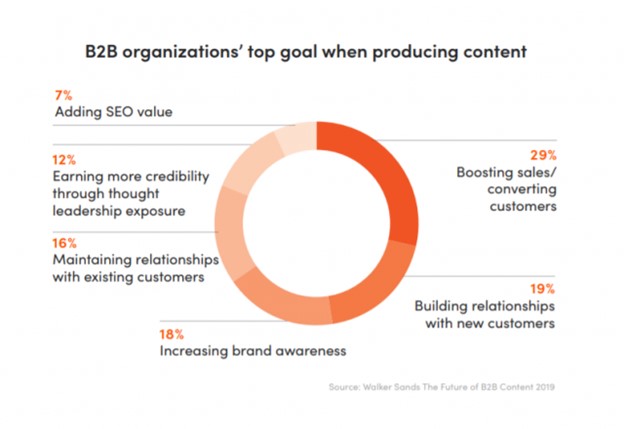


Add comment ×